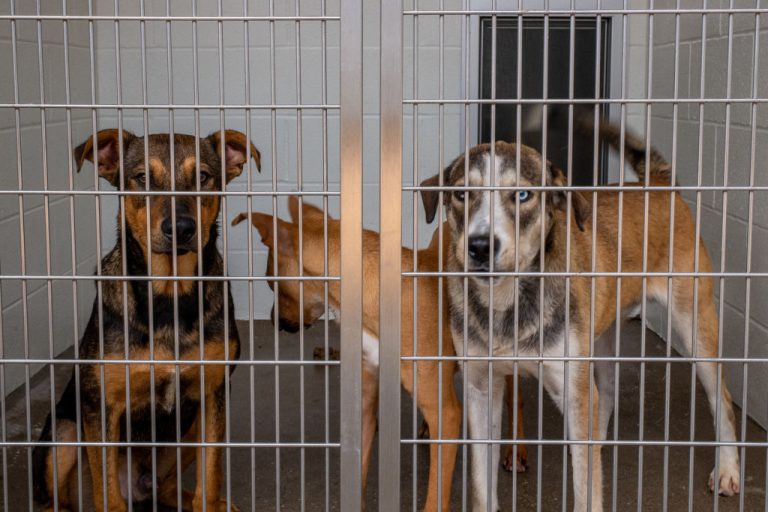During the early months of the pandemic many people who found themselves at home with extra time on their hands chose to adopt or purchase a pet. Now that the pandemic has eased, people have begun to surrender their pets to animal shelters and rescue homes overwhelming the facilities and the trend appears to be a widespread phenomena.
Gord Hunter, executive director of the Kingston Humane Society, located just east of Toronto, told the Canadian Broadcasting Corporation (CBC) that he has never seen as many dogs in his organization’s care as they have currently.
“We’re seeing that once people are back into their pre-pandemic lifestyle, they haven’t been able to or willing to maintain that commitment,” Hunter told CBC Radio’s All In A Day.
In Canada’s capital, Ottawa, Mike Gatta, the adoption director for Ottawa Dog Rescue, said puppy mills and scammers exploited the pandemic for profit and are in part to blame for the influx of surrendered pets.
“Backyard breeders, puppy mills, they don’t care who buys the dog so long as they get their $3,000 for their little cute mixed breed that they’ve bred with the neighbor’s dog,” he told the CBC.
Success
You are now signed up for our newsletter
Success
Check your email to complete sign up
Registered breeders monitor their animals’ health and breed for behavior traits and often have a clause in purchase contracts that they’ll take the animal back if anything goes wrong, something unregistered breeders or operators of puppy mills do not offer.
This can result in high veterinary bills that prompt owners to surrender their pet as opposed to shouldering the expense.
Numerous animal shelters and rescue homes across the United States are grappling with the same crisis.
In Nashville, Tennessee the newly built Williamson County Animal Center, which was designed to assist animals in finding their “forever home” is instead seeing an uptick in surrenders which is overwhelming the facility.
The facilities’ Community Outreach Coordinator, Scott Pieper, told WKRN News, “Over the past year or so there has been an increase in intake, which is fairly consistent with what we are seeing nationally. There has been an increase in animals received at shelters and a decrease in adoption rates.”
According to the American Society for the Prevention of Cruelty to Animals (ASPCA) nearly one in five American households adopted a pet during the pandemic. However, the organization says that rising food and fuel costs could also be a contributing factor to the trend.
Inflation driving people to surrender their pets
Compounding the problem is soaring inflation that is making pet ownership too expensive for people’s shrinking budgets.
“I’ve been living in my car. I just can’t do this anymore,” or “We can’t afford to take care of them” are reasons animal rescue groups in Summit County, Colorado are hearing when people are surrendering their pets.
As the cost of pet food, supplies and veterinary services increase people are being priced out of owning a pet resulting in more surrenders than adoptions for animal rescue organizations.
Marty Habas, founder and president of Paws and Prayers, an animal rescue group in Cuyahoga Falls, Ohio, told the Akron Beacon Journal that his organization received more applications for surrendering pets than adopting them in May this year.
Surrender applications have increased by 45 percent for dogs and 27 percent for cats compared to January through May of 2021, he said.
According to Shelter Animals Count — an organization that keeps a database that tracks shelter intakes nationally — as of July 14, 2022 over 826-thousand pets have entered shelters in the United States, a number that is expected to balloon to well over a million by year end.
The number of pets being surrendered was expected however. Tracy Munn, the shelter manager at the Brandon Humane Society located in Brandon Manitoba, Canada said experts warned this would happen about a year ago. “They said people would be returning animals,” she said.
Munn told the Local Journalism Initiative that now that most people are back at their jobs after working from home, surrenders are soaring. Anticipating this, her organization implemented strict adoption policies that some say made it difficult to adopt a pet.
“You shouldn’t be getting one because you’re working from home, unless you’re a dog person and you were thinking of getting a second one and it’s good training time. That’s OK but very few people were doing that,” she said.
















